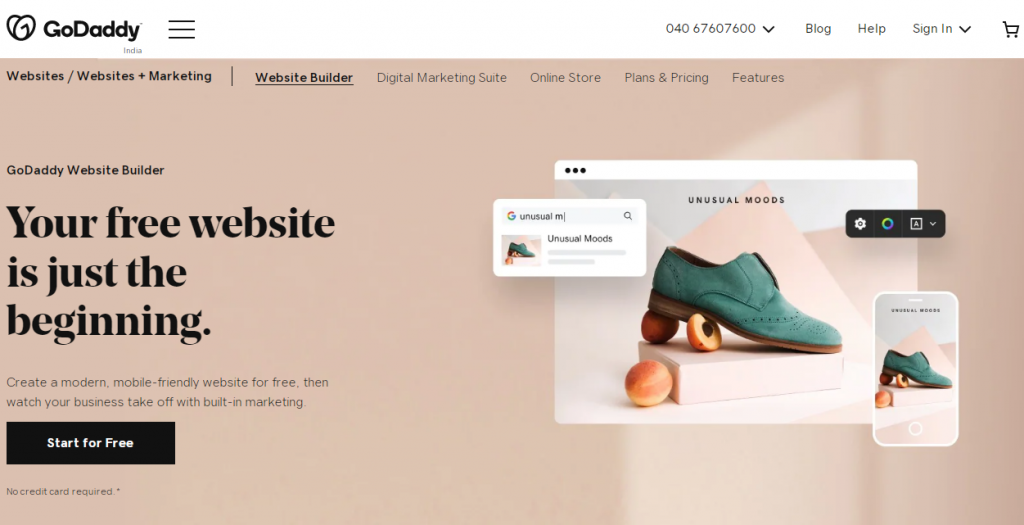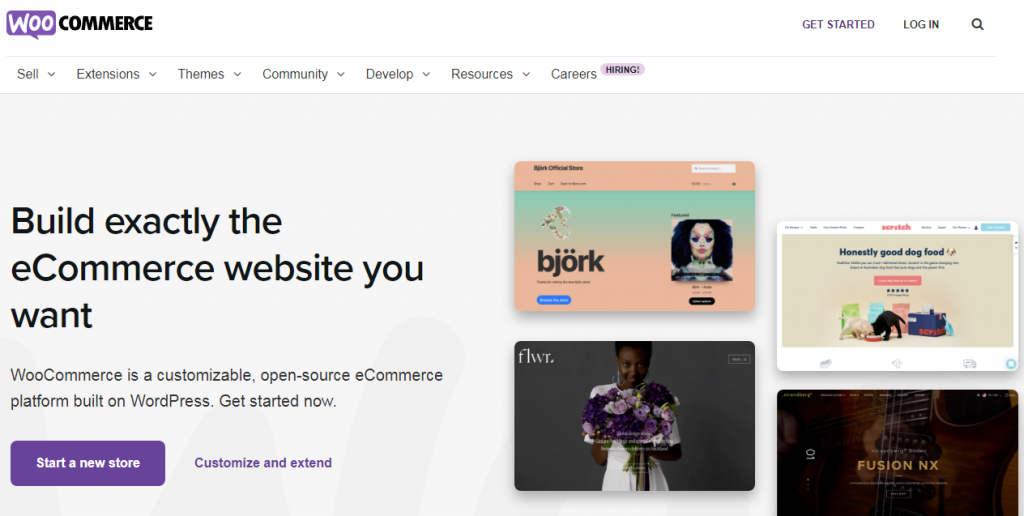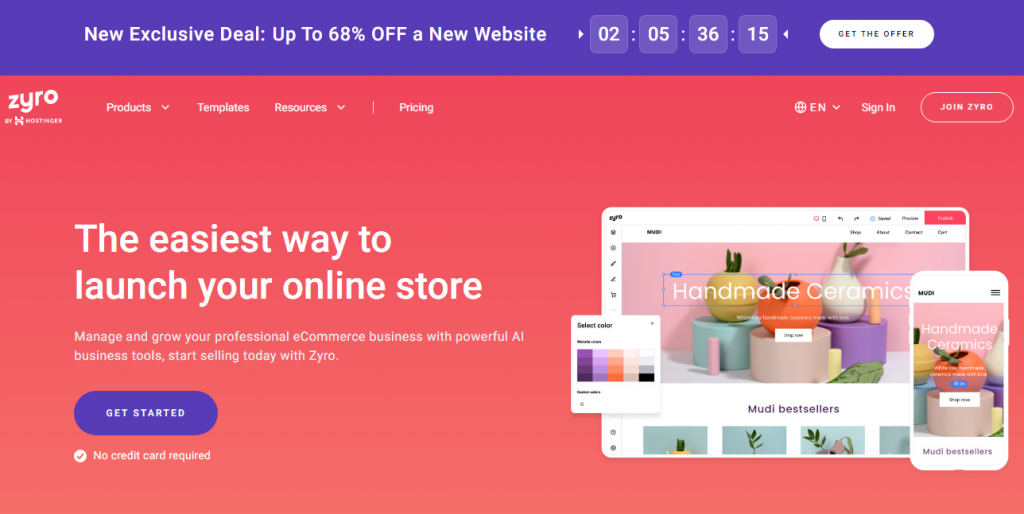Getting started with an e-commerce store can be a daunting task, but it’s also incredibly profitable if done correctly with good website builder. Having the right tools and resources can help you get started quickly and make sales.

The Best Ecommerce Website Builders of 2023
1. Shopify

One of the most reliable and easiest ways to establish an e-commerce business is through Shopify. It’s an affordable platform that lets anyone build a store online without any coding knowledge or a huge budget. It also offers a variety of marketing tools and beautiful website designs. For instance, the Casino blog is also built on the eCommerce website builder Shopify.
With over a hundred professional templates, you can build a store that’s designed to meet your needs. It includes features such as SSL certificates, domain registration, and abandoned cart recovery. With the help of its partner integrations, you can sell products through its platform and reach other marketplaces, such as Amazon and eBay.
2. Shift4Shop

With the help of its shopping cart, Shift4Shop is a tool that enables retailers to create an online presence. It’s a builder that’s designed for small-to-medium-sized businesses that need to establish an online presence. However, it lacks a variety of customization options.
3. Square Online

Formerly known as Weebly, Square Online is a free website builder. However, it doesn’t allow users to remove ads or register their own domain name until they pay for a plan. Its basic plan comes with a variety of features, such as real-time shipping, coupons, and support for Square payments.
4. Squarespace

When upgrading your plan, you can use Squarespace to create a storefront. It has a variety of ready-made templates that you can use to build a store, and it lets you alter the text, colors, and images to match your brand.
If you’re not interested in creating a store on the Squarespace platform, you can use the Buy Button. This feature allows you to add a small snippet of code to your website and turn it into a digital store. It comes with a variety of payment options, growth tracking, and currency support.
5. BigCommerce

With BigCommerce, you can build an e-commerce shop for companies of all sizes. Unfortunately, you can’t register your own domain name with this builder. Instead, you’ll have to buy a new one from another company.
With BigCommerce, you can create a store that’s optimized for international sales and has multichannel capabilities, including online and social selling.
6. Wix

Although it’s a free tool, Wix requires an upgrade to its paid version to start selling. This non-technical program allows users to build websites that are designed for eCommerce.
With Wix, users can manage their e-commerce business by selling through various channels and tracking orders. Its basic plan lacks certain features, such as tax calculators and drop-shipping. If you have a large inventory, you might want to use an e-commerce software with additional tools for inventory management.
7. GoDaddy

Although it’s known as a website-building tool, GoDaddy allows users to create an e-commerce store. It has built-in tools that boost search engine results and email marketing campaigns, and it lets retailers sell up to 1,500 items on its site.
8. WooCommerce

As an open-source e-commerce platform, WooCommerce works seamlessly with WordPress. It is not a website builder but a plug-in that can add various features to a site. Developers may be needed to use it.
Users can utilize WooCommerce to manage their website’s features, such as shipping arrangements, inventory control, secure payments, and tax administration. It is compatible with WordPress plugins and themes.
9. Volusion

Users can use Volusion’s tools to create a product page and a homepage. It also allows users to integrate payment gateways and sell products.
Volusion offers analytics and inventory features, as well as a suggested product feature in its stores. Although physical products can be sold through its platform, it doesn’t support digital goods, such as music and art.
10. Zyro

With the help of Zyro, users can create a website that’s lightweight and utilizes ecommerce-related tools. It comes with integrations with various marketing platforms, including Facebook ads and Google Analytics.

